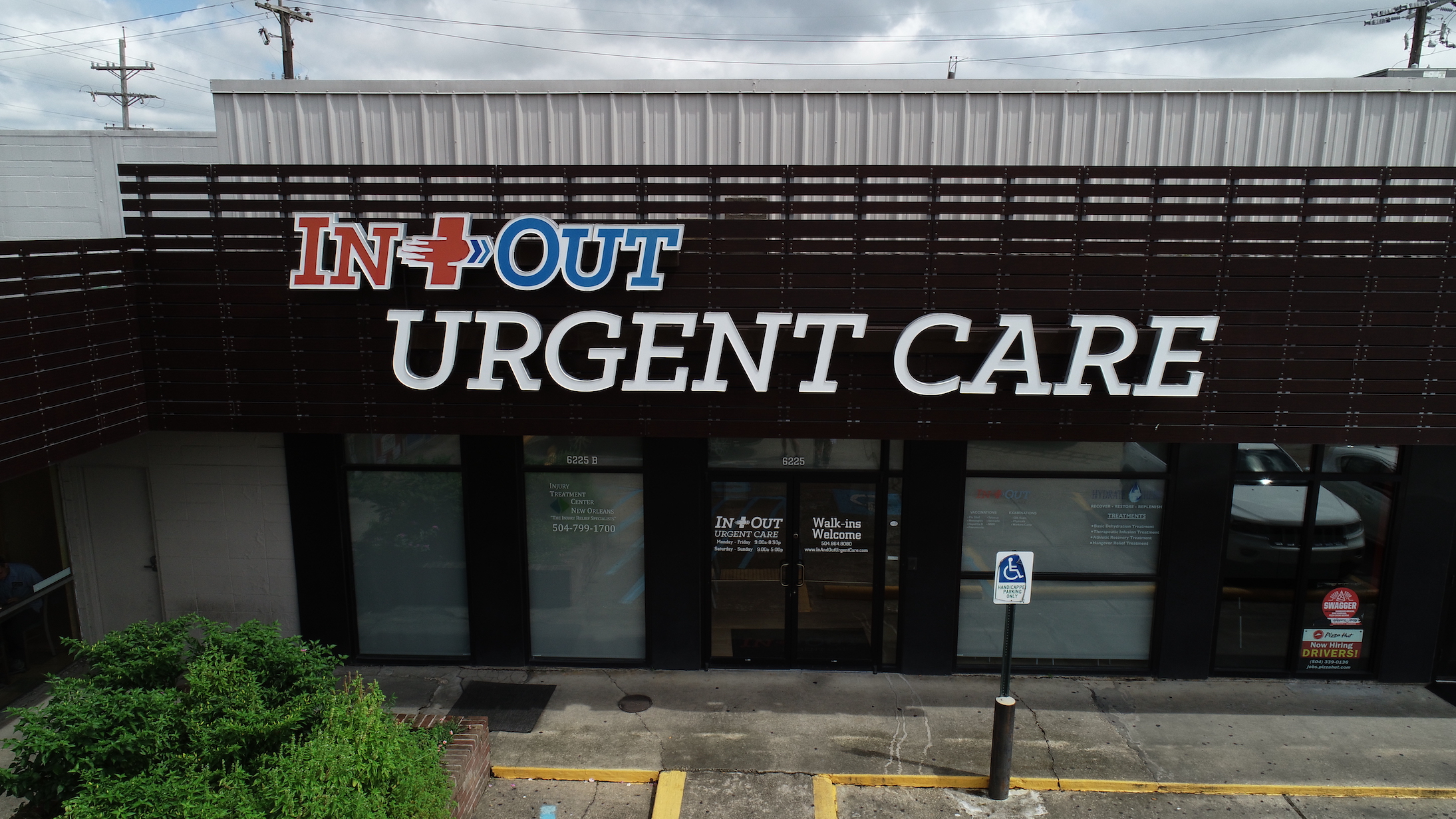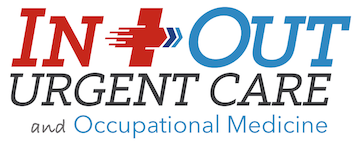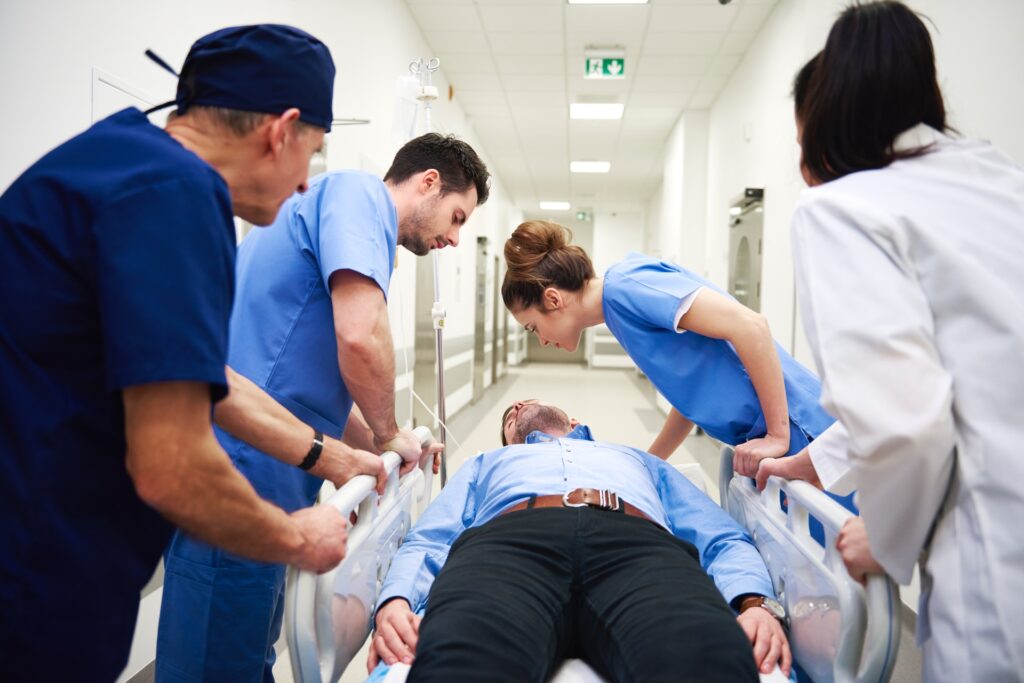Prompt Urgent Care in Mandeville, LA
Understanding Urgent Care
Urgent Care Explained
Urgent Care Facilities operate as walk-in clinics providing immediate healthcare for non-emergency situations. These facilities offer their services beyond the standard office hours, often extending to evenings, weekends, and some holidays. They are designed to cater to a broad spectrum of medical issues which, while not life-threatening, demand instant attention. Urgent care stands as a bridge between regular healthcare providers, who may not always be available on demand, and hospital emergency departments that cater to severe emergencies.
Deciding When to Visit Urgent Care
Urgent Care is the appropriate choice when non-critical but urgent medical care is needed. Typical instances when you might seek help from an urgent care center include:
Sprains or Minor Fractures:
Sprains are injuries to ligaments, which are the tough bands of tissue that hold bones together. Common sprains often affect the ankles or wrists. Minor fractures, on the other hand, are small cracks in the bone which could result from falls, sports activities, or accidents. Both conditions often cause pain, swelling, and difficulty using the affected area.
Lacerations Requiring Stitches:
A laceration is a deep cut or tear in the skin. If a laceration is deep enough to expose the dermis (the second layer of skin), fat, or muscle tissue, it may require stitches. Stitches help to close the wound and promote healing, while also minimizing scarring.
Moderate Asthma Attacks:
A moderate asthma attack is characterized by symptoms such as difficulty speaking or catching your breath, noticeable retractions (sucking in) of the chest and neck, frequent use of rescue inhalers, or breathlessness that impedes daily activities. In moderate attacks, the airways are more narrowed than in mild attacks, leading to increased difficulty in breathing.
Urinary Tract Disorders:
This term refers to any condition affecting any part of the urinary system, which includes kidneys, bladder, ureters, and urethra. Examples of urinary tract disorders include urinary tract infections (UTIs), kidney stones, bladder control problems (incontinence), and kidney infections. Symptoms can include frequent urination, discomfort during urination, and lower abdominal pain.
Ear or Sinus Infections:
Ear infections often result from a bacterial or viral infection that affects the middle ear, the air-filled space behind the eardrum. Common symptoms include ear pain, difficulty hearing, and fluid drainage from the ear. Sinus infections, also known as sinusitis, occur when the cavities around your nasal passages become inflamed, leading to symptoms like a runny nose, headache, facial pain, and congestion.
Flu or Sore Throat:
Flu (influenza) is a viral infection that attacks your respiratory system, causing symptoms like fever, chills, muscle aches, cough, congestion, runny nose, headaches, and fatigue. A sore throat is often a symptom of the flu, but can also be caused by other illnesses, like a cold or strep throat. It is characterized by pain, irritation, or scratchiness in the throat that often worsens when swallowing.
Mild Allergic Reactions:
Mild allergic reactions can include symptoms such as skin rash or hives, itchiness, nasal congestion, watery or itchy eyes, and sneezing. These symptoms are usually a reaction to allergens in the environment, like pollen, dust mites, or certain foods or medicines.
Minor Rashes or Burns:
Minor rashes are small areas of red, inflamed skin, often caused by allergies, irritants, or infections. Minor burns, typically first-degree burns, involve only the outer layer of skin, causing redness, pain, and minor swelling. Both rashes and minor burns can often be treated at home, but severe or persistent symptoms may require medical attention.
Non-severe Diarrhea, Vomiting, or Dehydration:
Non-severe diarrhea and vomiting are typically caused by a viral or bacterial infection, food poisoning, or certain medications. These symptoms can lead to dehydration if the person is not replacing lost fluids and electrolytes. Mild to moderate dehydration can cause symptoms like thirst, dry or sticky mouth, infrequent urination, dark yellow urine, dry, cool skin, and headache. Severe dehydration is a medical emergency and requires immediate medical attention.
Keep in mind, urgent care is not equipped to handle life-threatening emergencies. In such cases—severe chest pain, breathing difficulties, signs of stroke, heavy bleeding, or intense burns—visit an emergency room or dial 911 without delay.
Anticipating Your Urgent Care Visit
An urgent care visit typically entails a shorter waiting period compared to a hospital emergency room. Here’s what a standard visit might look like:
Registration: You will check in at the reception, providing your personal information and details about your health concern.
Preliminary Assessment: A medical professional will initially assess you, taking vital signs and a brief history of your health concern.
Medical Consultation: A healthcare provider will subsequently discuss your symptoms, conduct a physical examination, and decide on the optimal treatment plan.
Diagnostic Tests or Procedures: Depending on your condition, you may have to undergo diagnostic procedures like blood tests or X-rays, which can often be conducted at the urgent care center itself.
Treatment: Post-diagnosis, the healthcare provider will administer the necessary treatment, which might include prescribing medication, setting fractures, providing stitches, among others.
Discharge: Post-treatment, you’ll receive guidelines for home care, follow-up visits, and prescriptions, if needed.
Bear in mind, while urgent care facilities offer a plethora of services, they are not a replacement for a regular healthcare provider or a specialist familiar with your medical history.
What Services Does Urgent Care Provide?
Minor Injuries and Illnesses: Urgent care facilities provide treatment for minor injuries and illnesses including, but not limited to, infections, minor burns and rashes, the common cold and flu, minor wounds, fractures, and sprains.
Lab Tests and X-rays: These facilities often house onsite labs and X-ray equipment, enabling them to carry out a variety of diagnostic procedures such as blood tests, urine tests, and swabs for illnesses like flu or strep throat. They also conduct X-rays to diagnose fractures or lung conditions.
Stitching and Wound Care: Urgent care is equipped to manage deep cuts requiring stitches. They can cleanse the wound, administer local anesthesia, provide stitches, and guide you on wound care. They also manage wound dressing changes for existing injuries.
Treatment for Sprains and Strains: They can diagnose and treat sprains and strains, often employing X-rays for a precise diagnosis. Initial treatments like splinting, advice on rest and home care strategies, and specialist referrals are offered.
Vaccinations and Immunizations: Urgent care centers often provide routine vaccinations and immunizations, including flu shots, travel vaccinations, tetanus boosters, among others.
Physical and Sports Check-ups: They offer general physical examinations often required for schools, sports, or employment. Sports physicals are specifically aimed at assessing a person’s fitness to safely engage in physical activities.
Occupational Health Services: These services target employee health and safety in the workplace. An urgent care facility may offer services such as pre-employment physicals, drug and alcohol tests, management of work-related injuries, and other health screenings.
Remember, urgent care is designed to supplement the care provided by your primary healthcare provider, who is responsible for preventive care, chronic disease management, and care coordination with other specialists. Urgent care is your go-to when your regular healthcare provider is not available or for non-life-threatening issues requiring immediate care.
Why Opt for Our Urgent Care?
- Easy to access location
- Extended service hours
- Professional and experienced staff
- Cutting-edge facilities
- Competitive pricing
Arranging an Appointment
Mandeville
925 LA-59 Ste 400,
Mandeville, LA 70448
7am-7pm M-F
9am-5pm S-S
Call us on 985-951-2112
Visit our website at https://inandouturgentcare.com/locations/mandeville/
Common Queries
What should I bring to my visit?
Bring the following to your urgent care visit: Photo ID, Insurance Card (if you have health insurance), Current Medications List, Medical History, and Payment method.
What if I am insured?
Urgent care centers typically bill your insurance provider for services if you are insured. Your out-of-pocket expenses will be determined by your insurance plan details, including your co-pay amount, deductible, and whether the urgent care facility is within your insurance network. Always bring your insurance card and details to your appointment.
What if I am not insured?
Without insurance, you will have to bear the costs of the services provided by the urgent care center. This usually includes a base fee for the visit and additional charges for services like lab tests, X-rays, or procedures. The cost of urgent care without insurance can vary, but it is usually much less expensive than an emergency room visit. Some clinics may offer an income-based sliding scale fee or a discount for full payment at the time of the visit.
What are your payment methods?
Payment methods vary across clinics, but most urgent care centers accept multiple forms of payment including cash, debit cards, and credit cards. Some may also provide payment plans or financial assistance programs for qualifying individuals. For specific information about a clinic’s payment methods, it’s best to contact them directly.


